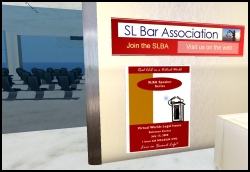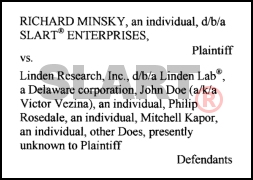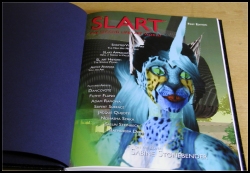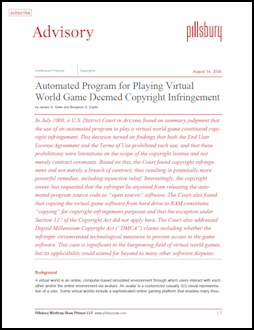Entropia Creates Virtual Property Wills; Sweden Implements Tax Rules for Virtual Property
September 9th, 2008 by Benjamin Duranske
 In a virtual property first, Sweden’s Mindark, creator of the real cash economy-based game/virtual world Entropia Universe is, according to a post at Entropia Forum (which translates a Swedish article), creating wills to allow the inheritance of virtual property. The article also discusses the tax situation regarding gains in Entropia. and notes, for what I believe is the very first time, that a revenue service is taxing virtual world activity (“since Spring”) under specific, implemented tax rules.
In a virtual property first, Sweden’s Mindark, creator of the real cash economy-based game/virtual world Entropia Universe is, according to a post at Entropia Forum (which translates a Swedish article), creating wills to allow the inheritance of virtual property. The article also discusses the tax situation regarding gains in Entropia. and notes, for what I believe is the very first time, that a revenue service is taxing virtual world activity (“since Spring”) under specific, implemented tax rules.
Regarding wills for transferring virtual property on death:
The company Mindark from Gothenburg will begin to draw up wills for their customers to cover the things they own in their virtual computer world. It’s a natural development, says project manager Carl Uggla.
And regarding taxing profits made in virtual worlds:
The IRS [of Sweden] has since spring begun to tax the activities within online worlds. We’re not performing any bigger investigations. It’s more of a service and a way for us to be clear about the rules. I have got questions from several entrepreneurs who want to start activities in these worlds and about how they should go about it. People want to do what’s right, says Dag Hardyson at the Swedish IRS.
Martina Bertilsson sees the IRS’s actions as the logical one. It’s about validating this business sector, she says. A lot of what happens online is still in a legislative gray area and open for pure legal interpretation, but there are now rules implemented regarding income tax for people living in Sweden, she says.
Related Posts on Virtually Blind
- Mindark’s CIO Meets with U.S. Government Officials on Virtual World and MMO Game Taxation: "3pointD.com reports that MindArk's Chief Information Officer, Marco..." (5 comments)
- Click to Agree: Where and How Disputes with Virtual World and Game Providers Are Settled: "Guest Commentary - Part One of VB's "Click to Agree" Series When you..." (8 comments)
- Sweden to Open Embassy in Second Life: "Seems Sweden will be the first nation to open an embassy in Second..." (2 comments)



 Linden Lab and a Second Life user known as avatar ‘Victor Vezina’ have been named in a
Linden Lab and a Second Life user known as avatar ‘Victor Vezina’ have been named in a  Minsky is representing himself in this action. The case is complex, and there are a lot of hurdles to clear before this is resolved, including likely early motions from Linden Lab seeking to dismiss the case for improper venue (the Second Life Terms of Service require filing in California) and to dismiss the claims against Rosedale and Kapor. These are not insurmountable problems, but they do involve tricky legal issues and may challenge someone without counsel, particularly as Minsky will be facing a team of trained attorneys representing Linden Lab.
Minsky is representing himself in this action. The case is complex, and there are a lot of hurdles to clear before this is resolved, including likely early motions from Linden Lab seeking to dismiss the case for improper venue (the Second Life Terms of Service require filing in California) and to dismiss the claims against Rosedale and Kapor. These are not insurmountable problems, but they do involve tricky legal issues and may challenge someone without counsel, particularly as Minsky will be facing a team of trained attorneys representing Linden Lab.
